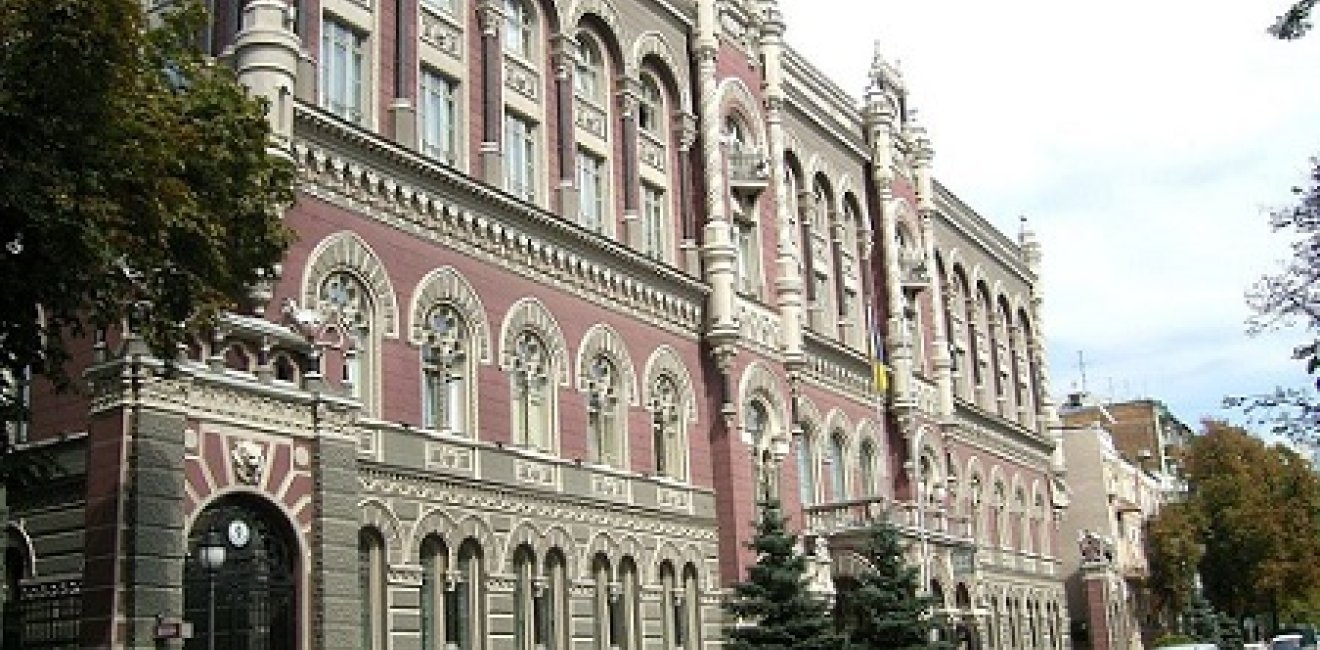
A blog of the Kennan Institute
BY VADYM SYROTA
Ukraine’s struggle to clean up its banking sector as part of a broad menu of reforms has been watched carefully by the international financial institutions. Measures undertaken by the National Bank of Ukraine (NBU) to significantly reduce the number of banks and strengthen the central bank’s institutional framework have won plaudits from the World Bank, which noted greater stability of the banking and financial landscape as a result. Yet the closure since 2014 of roughly half of Ukraine’s banks, many of them “pocket banks” owned by wealthy businessmen, has simultaneously brought to light a more resistant scheme of international transactions affecting Ukraine’s banks, one that will be harder to address and will require the cooperation of European banks and law enforcement agencies. A couple of recent, interconnected incidents suggest the scope of the problem.
On Monday, November 11, 2019, Oleksandr Pysaruk, the newly appointed board chair of Raiffeisen Bank Aval, a unit of Raiffeisen Bank International (RBI), was arrested, along with six others, on suspicion of embezzlement. A search of the local Ukrainian office of this Austrian bank by Ukraine’s National Anti-Corruption Bureau (NABU) had resulted in allegations of fraud being lodged against him.
Pysaruk was formerly first deputy governor of the NBU and an important member of the reformist team that was credited with cleaning up Ukraine’s banking system in 2014–2016. He continued his career at the International Monetary Fund (IMF) before joining Raiffeisen Bank in 2019. The fraud allegations concern the insolvency of VAB Bank during Pysaruk’s tenure with the NBU.
That same week another event took place, one connected to NABU’s search of RBI’s offices: the European Central Bank revoked a banking license for the Anglo-Austrian Bank.
Austria’s banking system is a hub through which post-Soviet elites are able to pour funds into the West’s financial system and offshore accounts in different jurisdictions. The alpine country often is seen as a financial center for politicians from Central and Eastern Europe. This is partially explained by the legacy of a “special relationship” between Austria and the Soviet Union after World War II. With the collapse of the Soviet bloc, cooperation of that type transformed into a set of dubious ventures undertaken by Russia’s and Austria’s bankers. According to Bill Browder, a well-known financier, RBI dealt intensively in laundering Russian money.
Before the Euromaidan during the winter of 2013−2014, Ukrainian banks were active in placing their assets through correspondent accounts of banks in the EU, including Meinl Bank AG and Bank Winter & Co. AG (Austria), Bank Frick & Co. AG (Liechtenstein), and East-West United Bank SA (Luxembourg). These highly liquid funds (generally kept in the equivalent of a personal account) sat idle on the banks’ balance sheets while Ukraine’s banking supervision turned a blind eye. These financial resources, looted from Ukraine’s economy, were then shifted to offshore accounts to fund lending transactions, resulting in an artificial increase in funds on the books of Ukraine’s banks. According to Ukraine’s Deposit Guarantee Fund, the total losses sustained by Ukraine’s fourteen failed banks once these schemes were uncovered and the books were corrected amounted to approximately 846 million in USD and 75 million in EUR. As for Meinl Bank, the Austrian anti-corruption prosecutor’s office has identified thirty people alleged to have laundered money through such transactions; the total losses were estimated at about 385 million in USD and 75 million in EUR.
After the onset of Russian aggression in eastern Ukraine and Crimea, the problems concealed on the banks’ ledgers became obvious. NBU's top management, including Oleksandr Pysaruk, activating the central bank’s lender of last resort (LOLR) function, loaned money to banks to provide the liquidity required by the financial institutions, in this way offsetting the financial holes hidden on the banks’ balance sheets. Unfortunately, banking supervision units were not able to prevent the embezzlement of funds and their transfer abroad. The total volume of NBU loans granted to the failed banks was approximately U.S. 1.9 billion And the debt of PJSC VAB Bank and PJSC CB Finansova Iniciativa (both banks are associated with the Ukrainian agricultural tycoon Oleg Bakhmatyuk) accounted for a quarter of that amount. Pysaruk was detained on suspicion of plundering the central bank’s stabilization loan that had previously been lent to VAB Bank, which was considered to be actively involved in transactions with Meinl Bank AG.
Despite the claims of the NBU representatives that the law enforcement agencies’ actions were politically motivated (those same agencies are now actively investigating corruption during the Poroshenko era), certain dubious aspects of the case cannot be ignored. First, before the deployment of the LOLR funding, a special clause was embedded in Ukrainian legislation that allowed loans to be made to agricultural producers despite existing regulatory restrictions. This move allegedly benefited the agricultural business of Oleg Bakhmatyuk. Moreover, the wiping out of VAB Bank from the financial market was coupled not only with searches conducted by law enforcement agencies but also with seizure of the original documents of the credit contracts. In the realities of Ukraine’s justice system, absence of original documents pertaining to legal agreements makes the chance of collecting on loans issued by VAB Bank close to zero. Law enforcement agencies are now investigating these and certain other actions Pysaruk engaged in when he was deputy head of the NBU.
Insofar as the former owners of PrivatBank and Kostyantin Zhevago, the billionaire owner of Ferrexpo (a public mining company listed on the London Stock Exchange), are also allegedly using this alpine bank scheme, the disappearance of Ukrainian funds placed with little-known alpine banks is a matter of extreme importance. Many in the Ukrainian and U.S. expert communities are convinced that Ukraine’s inability to collect the funds looted from failed banks caused the current problems in cooperation between the IMF and the Ukrainian government.
Once these huge financial problems are taken into consideration, Ukraine’s much-lauded banking reform begins to look less shiny. To ensure an effective collections process to recover funds looted from the failed banks, some immediate actions are required, including active cooperation between Ukrainian and Austrian financial regulators and law enforcement agencies.
Author


Kennan Institute
After more than 50 years as a vital part of the Wilson Center legacy, the Kennan Institute has become an independent think tank. You can find the current website for the Kennan Institute at kennaninstitute.org. Please look for future announcements about partnership activities between the Wilson Center and the Kennan Institute at Wilson Center Press Room. The Wilson Center is proud of its historic connection to the Kennan Institute and looks forward to supporting its activities as an independent center of knowledge. The Kennan Institute is committed to improving American understanding of Russia, Ukraine, Central Asia, the South Caucasus, and the surrounding region through research and exchange. Read more

Explore More in Focus Ukraine
Browse Focus Ukraine
Talking to the Dead to Heal the Living

Ukrainian Issue in Polish Elections


